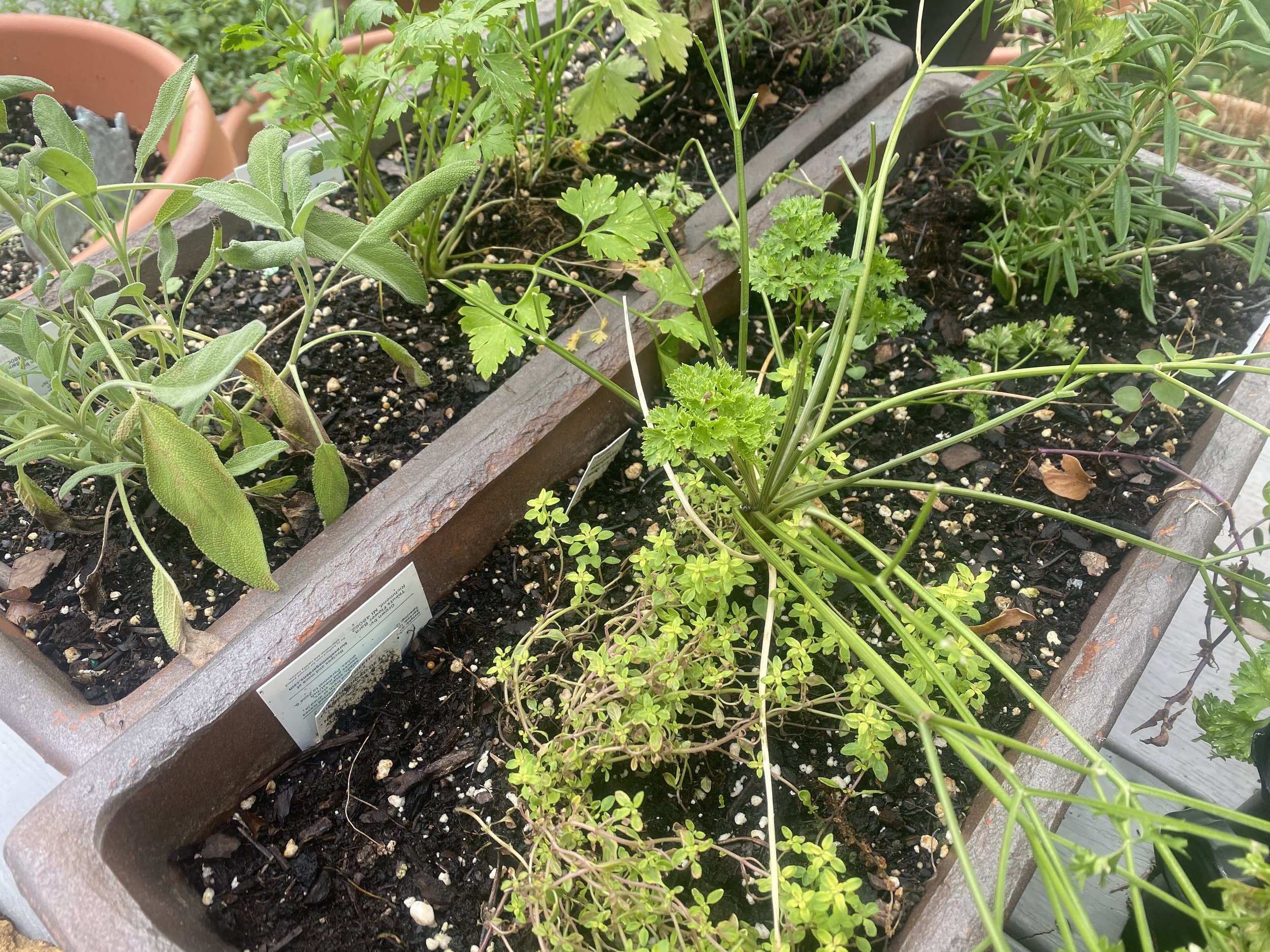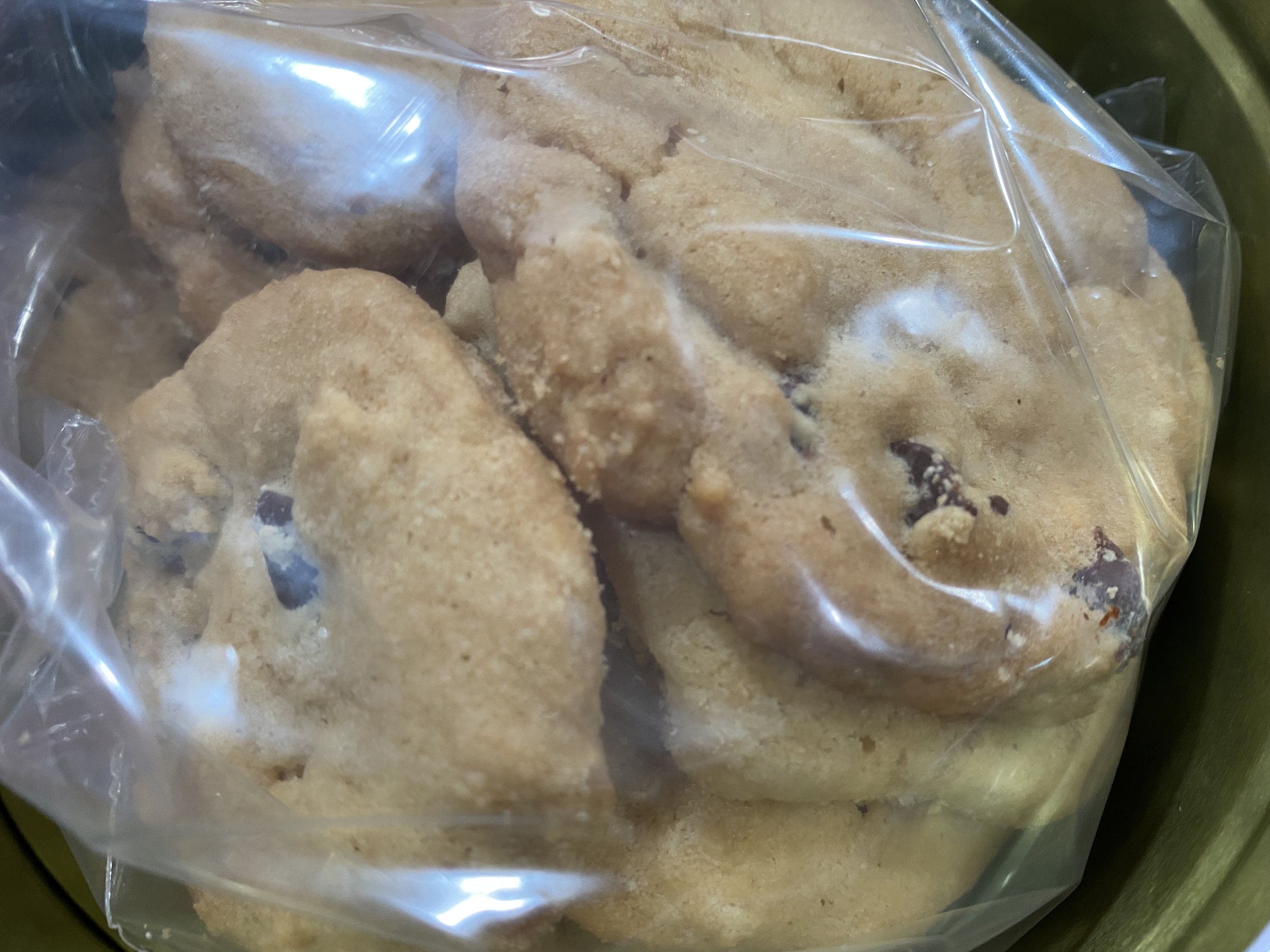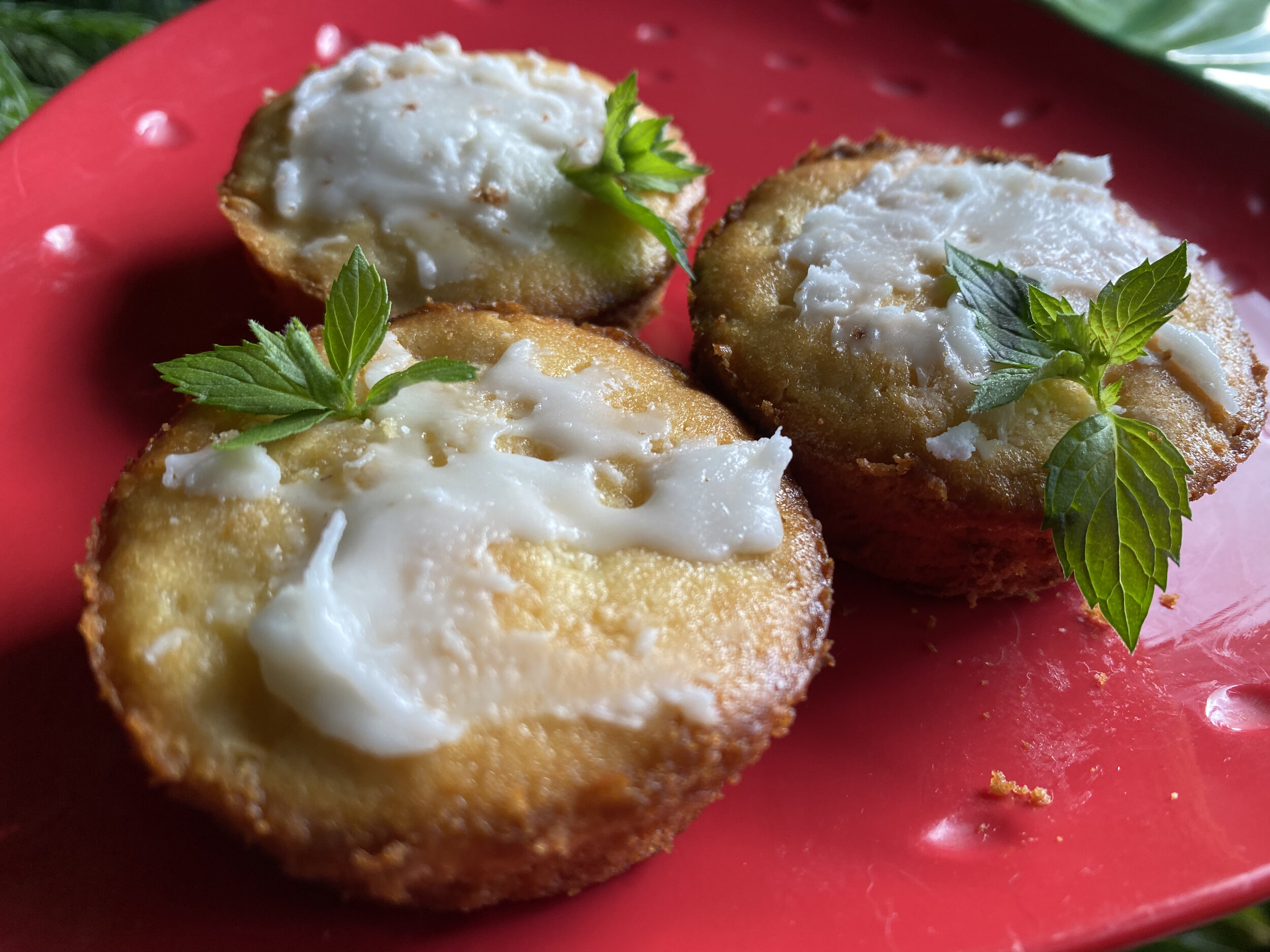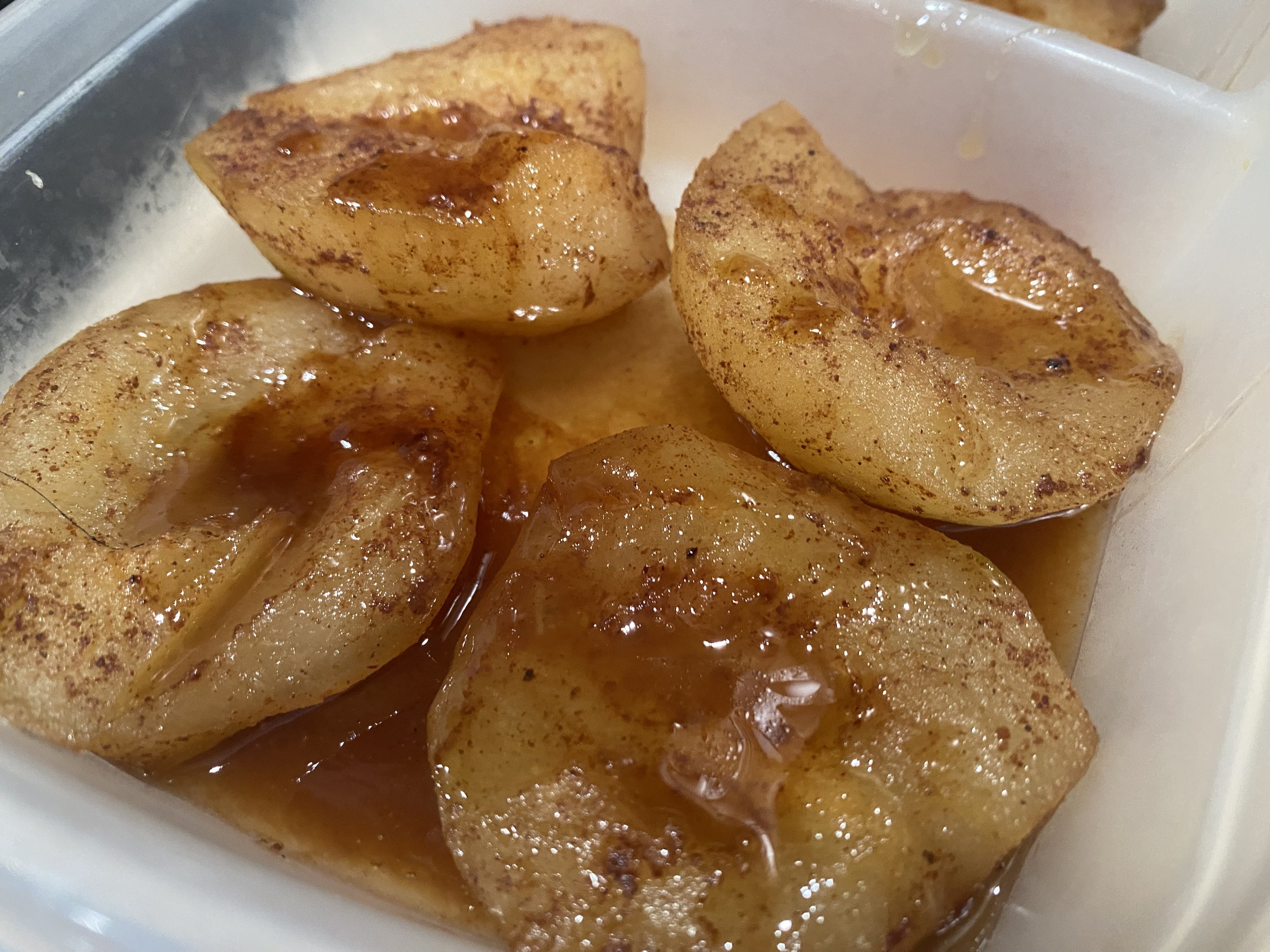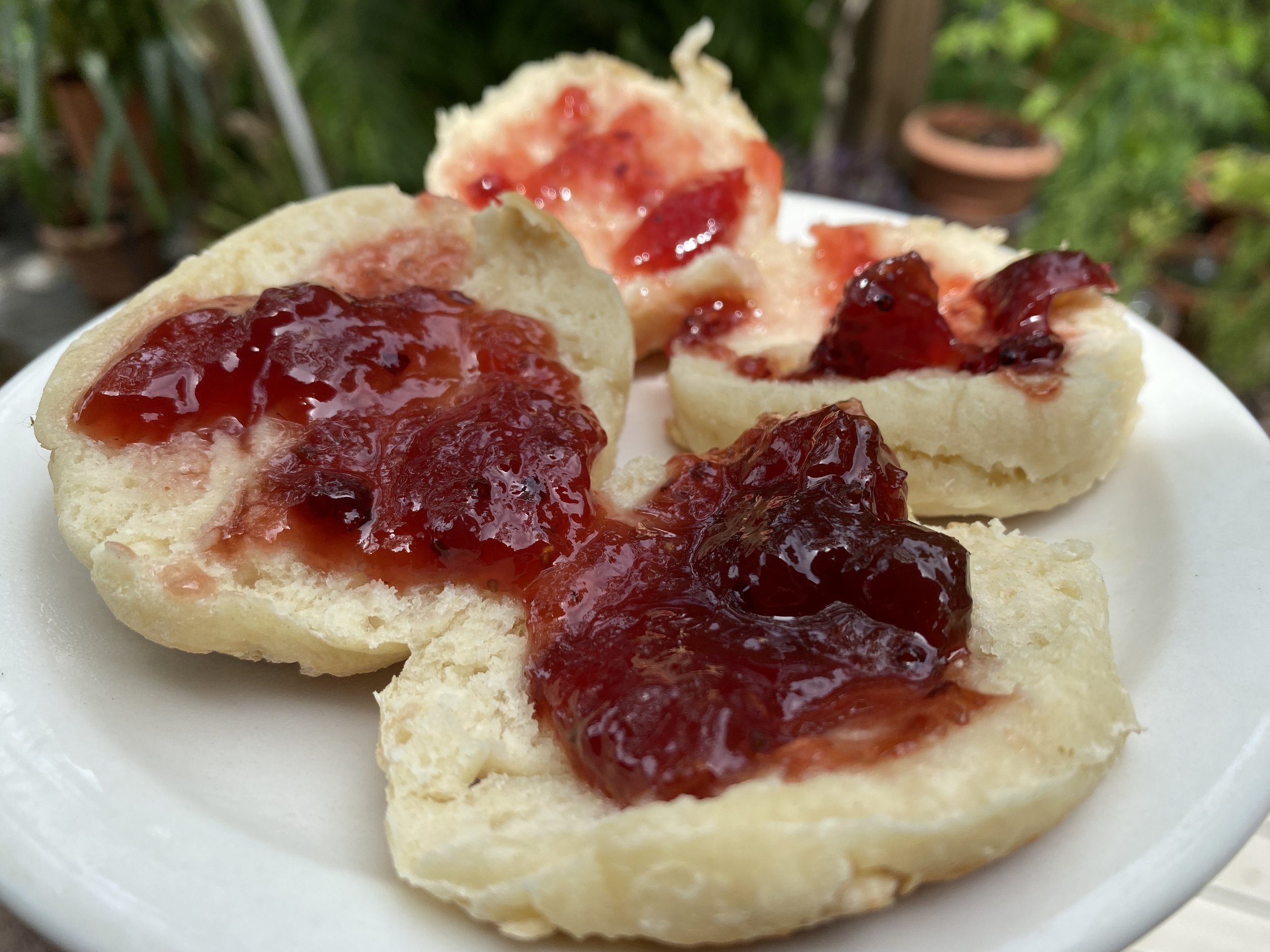How to Preserve Herbs
/Some herbs can be grown in small spaces. (charlotte ekker wiggins photo)
How to Preserve Herbs
Herbs have been an integral part of culinary and medicinal practices for centuries, adding flavor, aroma, and health benefits to various dishes and remedies. This time of year, I start to preserve my homegrown herbs for winter use starting by drying catnip and apple mint to freezing rosemary and basil.
To preserve their freshness and potency beyond their growing seasons, people have developed these two primary methods: drying and freezing. Each method has its own set of advantages and drawbacks.
Drying Herbs Pros
Concentration of Flavor and Aroma: Drying herbs removes the water content, intensifying their natural flavors and aromas. This enhanced potency can elevate culinary creations, making a little go a long way.
Long Shelf Life: Properly dried herbs can last for a long time, often up to a year or more. This allows cooks to enjoy herbs even when they are out of season.
Ease of Use: Dried herbs are readily available and easy to use. They can be crumbled or ground to a powder, making them convenient for seasoning and flavoring various dishes.
Space Efficiency: Dried herbs take up significantly less space than their fresh counterparts. This makes them ideal for people with limited storage space.
Drying Herbs Cons
Loss of Vibrancy: Drying herbs can lead to a loss of color, which can impact the visual appeal of dishes. Herbs like basil and parsley turn brown and lose some of their vibrant green hues.
Texture Changes: Drying can cause some herbs to become more brittle, altering their texture. This may not matter as much when used as a seasoning, but it can be unappetizing for garnishes.
Potential Flavor Changes: In some cases, drying can alter the flavor profile of certain herbs, making them taste slightly different from their fresh counterparts. This might be a concern for dishes that rely heavily on the freshness of the herbs.
Freezing Herbs Pros
Retention of Color and Freshness: Freezing herbs preserves their vibrant colors and fresh appearance. This is particularly advantageous for dishes where aesthetics matter.
Minimal Flavor Loss: Freezing herbs can help retain a larger portion of their original flavors compared to drying.
Versatility: Frozen herbs can be used in a wider range of dishes. They can be added directly to soups, stews, and sauces, imparting their flavors without needing to be defrosted first.
Convenience: Freezing herbs is straightforward; you can simply wash, chop, and freeze them in portion-sized containers or ice cube trays.
Freezing Herbs Cons
Shorter Shelf Life: Frozen herbs have a shorter shelf life compared to dried ones. They can generally be stored for up to six months before their quality starts to degrade.
Texture Changes: Some herbs might experience a change in texture after being frozen, becoming slightly mushy or wilted. This can affect their suitability for certain uses like garnishing.
Freezer Space: Storing frozen herbs requires dedicated freezer space, which might not be feasible for those with limited room in their freezers.
The choice between drying and freezing herbs depends on your culinary preferences and storage capabilities. If you prioritize the concentration of flavors, extended shelf life, and space efficiency, drying herbs might be the better option.
On the other hand, if you value the retention of color, minimal flavor loss, and versatility in dishes, freezing herbs could be the way to go.
In many cases, a combination of both methods can offer a well-rounded solution, allowing you to enjoy the benefits of each preservation technique.
For more cooking, gardening, beekeeping and easy home decor tips, subscribe to Garden Notes.

